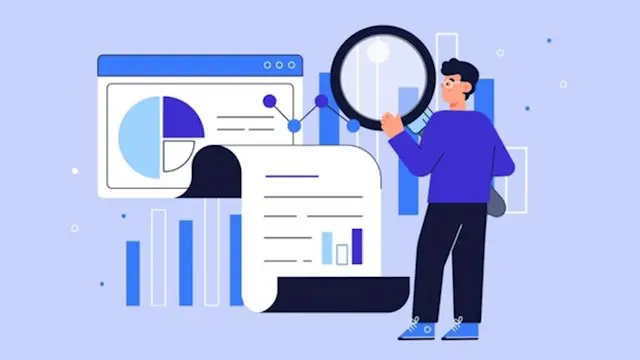
Business Intelligence and Data Analytics
Self-paced videos, Lifetime access, Study material, Certification prep, Technical support, Course Completion Certificate
Uplatz
Summary
- Certificate of completion - Free
- Reed courses certificate of completion - Free
Add to basket or enquire
Overview
Uplatz offers this comprehensive training on Business Intelligence and Data Analytics. It is a self-paced video course. You will be awarded Course Completion Certificate at the end of the course.
Analytics and business intelligence (ABI) is a broad phrase that refers to the applications, infrastructure, tools, and best practices that enable access to and analysis of data in order to enhance and optimize decision-making and performance. Business intelligence (BI) is the process of transforming data into actionable insights that help a company make strategic and tactical choices. To offer users with detailed insight about the condition of the business, BI tools access and analyze data sets and show analytical findings in reports, summaries, dashboards, graphs, charts, and maps.
Business intelligence and analytics are data management solutions used in businesses and organizations to collect historical and current data, evaluate it using statistics and software, and provide insights for making better decisions in the future. The phrase "business intelligence" is also used to describe a set of technologies that enable rapid, easy-to-understand access to data-driven insights about an organization's present status.
Gathering, cleaning, and analyzing essential business data: A business intelligence analyst could collect, clean, and evaluate data like as revenue, sales, market statistics, or customer engagement measures. In addition, BI analysts may be requested to create tools and data models to aid in the visualization and monitoring of data.
This internationally acclaimed Business Intelligence and Data Analytics Certification Course by Uplatz is designed to teach you all three areas of Business Analysis: planning and monitoring, eliciting requirements, and managing and communicating requirements. Learn the newest technologies and understand real-world projects to become job-ready.
Course Objectives
- Learn statistics, SQL, Tableau, and problem-solving techniques.
- Improve your CV by adding in-demand talents.
- Data should be gathered, organized, analyzed, and visualized.
- Data may be used to make better business decisions.
- Metrics, KPIs, reports, and dashboards are used to present data.
- Analyze the business in both quantitative and qualitative terms.
- Analyze data from the present and the past.
- Learn how to spot trends, assess market circumstances, and assess competition positioning.
- Learn the foundations of database theory.
- Create, construct, and operate SQL databases with SQL.
- Create your own queries to extract data from a database.
- Tableau allows you to create sophisticated professional visuals.
- To visualize data, use Tableau, Power BI, SAP BO, MS Excel, and more tools.
Curriculum
Course media
Description
A job as a business analyst is a good fit for both new and seasoned workers. Aspiring business analysts, including recent college graduates and those looking to make a career change, new business analysts looking to improve their craft, and other positions that perform business analysis duties, such as administrators, managers, and project leads, are best suited to pursue the Business Analyst Training.
Analyst jobs might lead to a career as a business intelligence analyst and data analytics consultant. They might go on to work as business intelligence consultants, architects, managers, or in other high roles. Analysts in business intelligence apply their critical thinking and quantitative skills to help companies develop and prosper. BI analysts will likely be critical to business operations for years to come as data plays an increasingly important role in our daily lives.
Who is this course for?
Everyone
Requirements
Passion and determination to achieve your goals!
Career path
- Data Analyst
- Business Intelligence (BI) Analyst
- Data Consultant
- BI Developer
- Business Consultant
- Reporting Analyst
- Marketing Analyst
- Financial Analyst
- Business Analyst
Questions and answers
Is the start of the course is flexible?
Answer:Hi Marzena, This is a self paced video course, which means you can learn at your own pace. Once you buy the course you will have access to it for lifetime. Hope this helps. Thanks. Regards Team Uplatz
This was helpful.Is the start of the course is flexible?
Answer:Hi Marzena, This is a self paced video course, which means you can learn at your own pace. Once you buy the course you will have access to it for lifetime. Hope this helps. Thanks. Regards Team Uplatz
This was helpful.
Certificates
Certificate of completion
Digital certificate - Included
Course Completion Certificate by Uplatz
Reed courses certificate of completion
Digital certificate - Included
Will be downloadable when all lectures have been completed
Reviews
Currently there are no reviews for this course. Be the first to leave a review.
Legal information
This course is advertised on reed.co.uk by the Course Provider, whose terms and conditions apply. Purchases are made directly from the Course Provider, and as such, content and materials are supplied by the Course Provider directly. Reed is acting as agent and not reseller in relation to this course. Reed's only responsibility is to facilitate your payment for the course. It is your responsibility to review and agree to the Course Provider's terms and conditions and satisfy yourself as to the suitability of the course you intend to purchase. Reed will not have any responsibility for the content of the course and/or associated materials.


